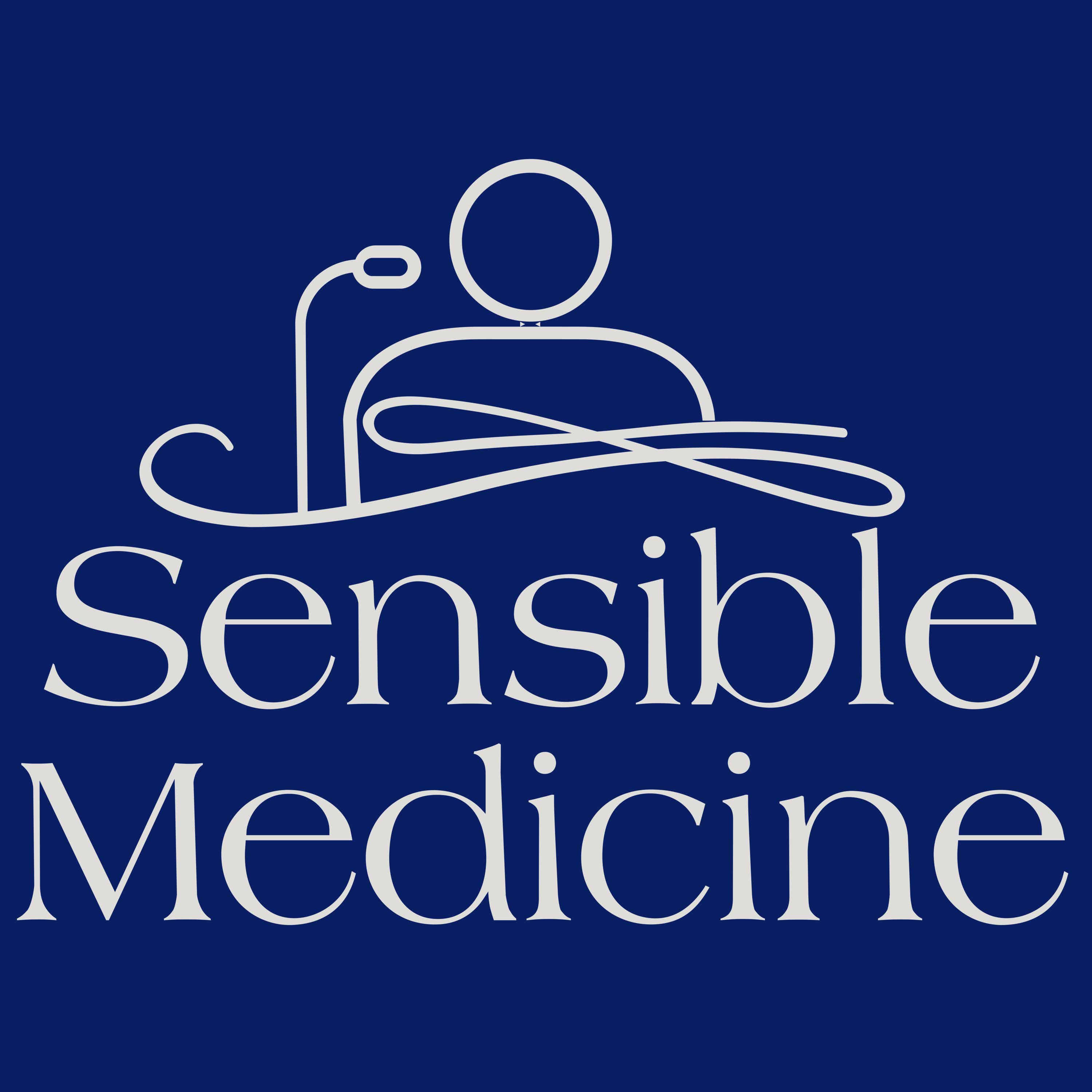

Sensible Medicine
Sensible Medicine Authors and Editors
Common sense and original thinking in bio-medicine
A platform for diverse views and debate www.sensible-med.com
A platform for diverse views and debate www.sensible-med.com
Episodes
Mentioned books

Jan 28, 2026 • 46min
This Fortnight in Medicine XVIII
They debate a new flu antiviral, covering trial results, timing of treatment, household transmission, costs, and comparisons with older drugs. They dig into a heart failure trial about rapid medication up-titration, questioning follow-up intensity, patient selection, and real-world applicability. The conversation centers on tradeoffs between pragmatic trials and individualized clinical care.

Jan 23, 2026 • 7min
Friday Reflection 56: Comments that Stuck
Short reflections on a few offhand comments that shaped bedside manner and clinical choices. Stories include an elderly patient arriving late during a snowstorm and a decision to still see her. Anecdotes range from grocery-store lessons about practicality to caring for immigrant patients and learning who you can and cannot be for every person.

4 snips
Jan 18, 2026 • 40min
When to treat (or not treat) a high cholesterol
Venk Murthy, a cardiologist from the University of Michigan, and Andrew Foy, a preventive cardiology specialist, dive into the complexities of cholesterol management. They challenge the standard thresholds for treating high LDL, emphasizing the importance of overall risk assessment. Venk discusses genetic insights suggesting earlier LDL lowering, while Andrew highlights the nuanced decision-making required for treating isolated LDL elevations. They also debate when to incorporate coronary calcium scoring and the limitations of relying solely on lifelong prevention strategies.

Jan 14, 2026 • 45min
This Fortnight in Medicine XVII
Medical Management and Revascularization for Asymptomatic Carotid StenosisVagus nerve-mediated neuroimmune modulation for rheumatoid arthritis: a pivotal randomized controlled trialWe spent quite a bit of time talking about blinding. This is the table on the adequacy of blinding from the supplement. It does seem like blinding was less than perfect. This is a public episode. If you'd like to discuss this with other subscribers or get access to bonus episodes, visit www.sensible-med.com/subscribe

Dec 31, 2025 • 1h 23min
This Fortnight in Medicine XVI
We try to answer the remainder of your AUA questions. We will be back in the new year with more article discussions!Here are a few of the things we referenced.GDMT Bugs Me: A bit of a rant against the standard of careA Plan to Refocus Primary CareSacrificing patient care for prevention: distortion of the role of general practiceThe Great Colonoscopy DebateArthroscopic Partial Meniscectomy versus Sham Surgery for a Degenerative Meniscal Tear This is a public episode. If you'd like to discuss this with other subscribers or get access to bonus episodes, visit www.sensible-med.com/subscribe

Dec 17, 2025 • 1h 1min
This Fortnight in Medicine XV
We cover questions from Amy J, Benjamin Hourani, Diana Stiles Friou, Chris Costas, Errol Laurie, Jim Healthy, Elizabeth Fama, Never Dull, Rod Rodriguez, Ellison Burns, David Araujo, and George.We have more to come!One nice reference I found while looking into some of the topics:DMSO Is Not a Cure-All. But the FDA’s Panic Over It Birthed a Myth This is a public episode. If you'd like to discuss this with other subscribers or get access to bonus episodes, visit www.sensible-med.com/subscribe

Dec 3, 2025 • 34min
This Fortnight in Medicine XIV
Vascular and inflammatory diseases after COVID-19 infection and vaccination in children and young people in England: a retrospective, population-based cohort study using linked electronic health recordsComparison of an Initial Risk-Based Testing Strategy vs Usual Testing in Stable Symptomatic Patients With Suspected Coronary Artery Disease: The PRECISE Randomized Clinical Trial This is a public episode. If you'd like to discuss this with other subscribers or get access to bonus episodes, visit www.sensible-med.com/subscribe

Nov 19, 2025 • 44min
This Fortnight in Medicine XIII
European Study of Prostate Cancer Screening — 23-Year Follow-upAssociation Between Baseline Diastolic Blood Pressure and the Efficacy of Intensive vs Standard Blood Pressure–Lowering TherapyFurther Reading* Effects of intensive blood-pressure control in type 2 diabetes mellitus* A Randomized Trial of Intensive versus Standard Blood-Pressure ControlSensible Medicine is 100% reader-supported. If you appreciate our work, consider becoming a free or paid subscriber. This is a public episode. If you'd like to discuss this with other subscribers or get access to bonus episodes, visit www.sensible-med.com/subscribe

Nov 5, 2025 • 41min
This Fortnight in Medicine XII
Effects of Intensive Blood Pressure Control in Patients With Frailty: A Post Hoc Analysis From ESPRIT* Lowering systolic blood pressure to less than 120 mm Hg versus less than 140 mm Hg in patients with high cardiovascular risk with and without diabetes or previous stroke: an open-label, blinded-outcome, randomised trial* Reduction of Antihypertensive Treatment in Nursing Home ResidentsPolysaccharide Conjugate Vaccine against Pneumococcal Pneumonia in Adults* A trial to evaluate the safety and immunogenicity of a 20-valent pneumococcal conjugate vaccine in populations of adults ≥65 years of age with different prior pneumococcal vaccination This is a public episode. If you'd like to discuss this with other subscribers or get access to bonus episodes, visit www.sensible-med.com/subscribe

Oct 22, 2025 • 51min
This Fortnight in Medicine XI
Total cholesterol and all-cause mortality by sex and age: a prospective cohort study among 12.8 million adults* The Ideal Cholesterol Level ... Depends...And Cannot Be Determined From Observational StudiesStructured vs Self-Guided Multidomain Lifestyle Interventions for Global Cognitive Function: The US POINTER Randomized Clinical Trial* Can We Please Stop Asking if Crossword Puzzles Prevent Dementia? This is a public episode. If you'd like to discuss this with other subscribers or get access to bonus episodes, visit www.sensible-med.com/subscribe


